
Michael Rennie was a British film, television and stage actor, who had leading roles in a number of Hollywood films, including his portrayal of the space visitor Klaatu in the science fiction film The Day the Earth Stood Still (1951). In a career spanning more than 30 years, Rennie appeared in more than 50 films and in several American television series.

Margaret Mary Day Lockwood, CBE, was an English actress. One of Britain's most popular film stars of the 1930s and 1940s, her film appearances included The Lady Vanishes (1938), Night Train to Munich (1940), The Man in Grey (1943), and The Wicked Lady (1945). She was nominated for the BAFTA Award for Best British Actress for the 1955 film Cast a Dark Shadow. She also starred in the television series Justice (1971–74).
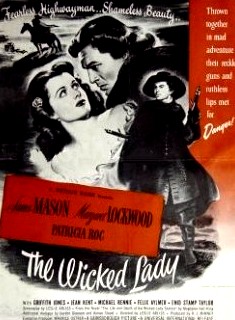
The Wicked Lady is a 1945 British costume drama film directed by Leslie Arliss and starring Margaret Lockwood in the title role as a nobleman's wife who becomes a highwaywoman for the excitement. The film had one of the largest audiences for a film of its period, 18.4 million.
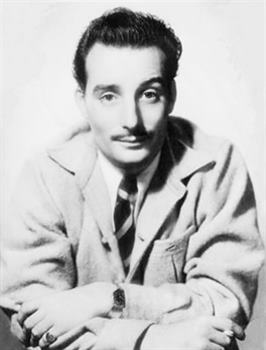
Val Guest was an English film director and screenwriter. Beginning as a writer of comedy films, he is best known for his work for Hammer, for whom he directed 14 films, and for his science fiction films. He enjoyed a long career in the film industry from the early 1930s until the early 1980s.
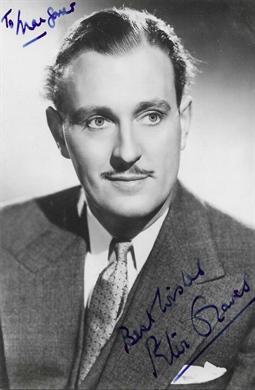
Peter George Wellesley Graves, 8th Baron Graves was an English actor.

The Man in Grey is a 1943 British film melodrama made by Gainsborough Pictures; it is considered to be the first of a series of period costume dramas now known as the "Gainsborough melodramas". It was directed by Leslie Arliss and produced by Edward Black from a screenplay by Arliss and Margaret Kennedy that was adapted by Doreen Montgomery from the 1941 novel The Man in Grey by Eleanor Smith. The film's sets were designed by Walter Murton.
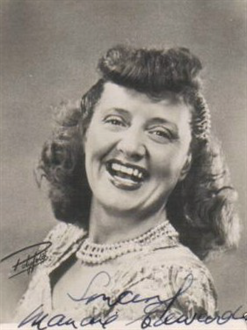
Elizabeth Maud Edwards, professionally known as Maudie Edwards, was a Welsh actress, radio broadcaster, comedian, dancer and singer, best remembered for having spoken the first line of dialogue in soap opera Coronation Street, and playing Elsie Lappin in the first two episodes. She was previously best known to listeners of the radio programme Welsh Rarebit, which attracted weekly audiences of 10 million.

A Place of One's Own is a 1945 British film directed by Bernard Knowles. An atmospheric ghost story based on the 1940 novel of the same title by Osbert Sitwell, it stars James Mason, Barbara Mullen, Margaret Lockwood, Dennis Price and Dulcie Gray. Mason and Mullen are artificially aged to play the old couple. It was one of the cycle of Gainsborough Melodramas.
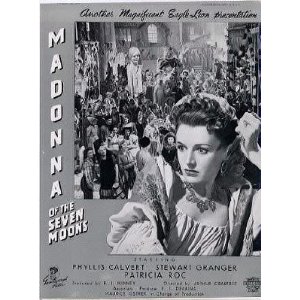
Madonna of the Seven Moons is a 1945 British drama film starring Phyllis Calvert, Stewart Granger and Patricia Roc. Directed by Arthur Crabtree for Gainsborough Pictures, the film was produced by Rubeigh James Minney, with cinematography from Jack Cox and screenplay by Roland Pertwee. It was one of the Gainsborough melodramas of the mid-1940s popular with WW2-era female audiences.
Edward Black was a British film producer, best known for being head of production at Gainsborough Studios in the late 1930s and early 1940s, during which time he oversaw production of the Gainsborough melodramas. He also produced such classic films as The Lady Vanishes (1938). Black has been called "one of the unsung heroes of the British film industry" and "one of the greatest figures in British film history, the maker of stars like Margaret Lockwood, James Mason, John Mills and Stewart Granger. He was also one of the very few producers whose films, over a considerable period, made money." In 1946 Mason called Black "the one good production executive" that J. Arthur Rank had. Frank Launder called Black "a great showman and yet he had a great feeling for scripts and spent more time on them than anyone I have ever known. His experimental films used to come off as successful as his others."
The Gainsborough melodramas were a sequence of films produced by the British film studio Gainsborough Pictures between 1943 and 1947 which conformed to a melodramatic style. The melodramas were not a film series but an unrelated sequence of films which had similar themes that were usually developed by the same film crew and frequently recurring actors who played similar characters in each. They were mostly based on popular books by female novelists and they encompassed costume dramas, such as The Man in Grey (1943) and The Wicked Lady (1945), and modern-dress dramas, such as Love Story (1944) and They Were Sisters (1945). The popularity of the films with audiences peaked mid-1940s when cinema audiences consisted primarily of women. The influence of the films led to other British producers releasing similarly themed works, such as The Seventh Veil (1945), Pink String and Sealing Wax (1945), Hungry Hill (1947), The White Unicorn (1947), Idol of Paris (1948), and The Reluctant Widow (1950) and often with the talent that made Gainsborough melodramas successful.
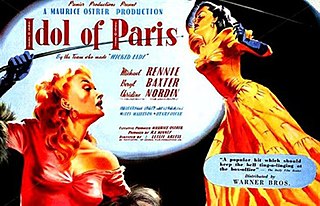
Idol of Paris is a 1948 film based on the novel Paiva, Queen of Love by Alfred Schirokauer, about a mid-19th century French courtesan Theresa who sleeps her way from poverty to the top of Second Empire society. It was an attempt by its makers to imitate the success of the Gainsborough melodramas.

Love Story is a 1944 British black-and-white romance film directed by Leslie Arliss and starring Margaret Lockwood, Stewart Granger, and Patricia Roc. Based on a short story by J. W. Drawbell, the film is about a concert pianist who, after learning that she is dying of heart failure, decides to spend her last days in Cornwall. While there, she meets a former RAF pilot who is going blind, and soon a romantic attraction forms. Released in the United States as A Lady Surrenders, this wartime melodrama produced by Gainsborough Pictures was filmed on location at the Minack Theatre in Porthcurno in Cornwall, England.
Muriel George was an English singer and film actress. She appeared in 55 films between 1932 and 1955. She also appeared on the variety stage and sang on radio with her second husband Ernest Butcher for thirty years. Her hobbies were gardening and antiques. By her first marriage, to Robert Davenport, an author and lyricist, she had a son, the critic John Davenport.
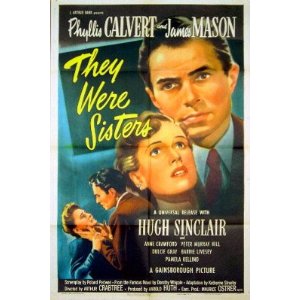
They Were Sisters is a 1945 British melodrama film directed by Arthur Crabtree for Gainsborough Pictures and starring Phyllis Calvert and James Mason. The film was produced by Harold Huth, with cinematography from Jack Cox and screenplay by Roland Pertwee. They Were Sisters is noted for its frank, unsparing depiction of marital abuse at a time when the subject was rarely discussed openly. It was one of the Gainsborough melodramas.

Doctor Syn is a 1937 British black-and-white historical dramatic adventure film, directed by Roy William Neill for Gainsborough Pictures. It stars George Arliss, Margaret Lockwood, Graham Moffatt, and Ronald Shiner. The film is based on the Doctor Syn novels of Russell Thorndike, set in 18th century Kent. The character of Syn and the events at the film's climax were both softened considerably in comparison to Thorndike's original storyline.

Feather Your Nest is a 1937 British musical comedy film directed by William Beaudine and starring George Formby, Polly Ward and Enid Stamp-Taylor. It contains Formby's signature tune, Leaning on a Lamp-post.
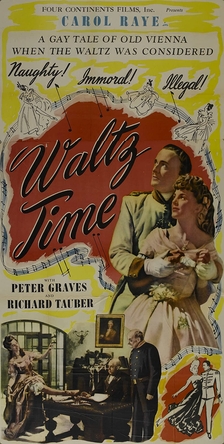
Waltz Time is a 1945 British musical film directed by Paul L. Stein and starring Carol Raye, Peter Graves and Patricia Medina.
This is a summary of 1945 in music in the United Kingdom.

The Lone Hand Texan is a 1947 American Western musical film directed by Ray Nazarro and starring Charles Starrett, Mustard, Gravy, Smiley Burnette, John Cason, and George Chesebro. The film was released by Columbia Pictures on March 6, 1947.
















